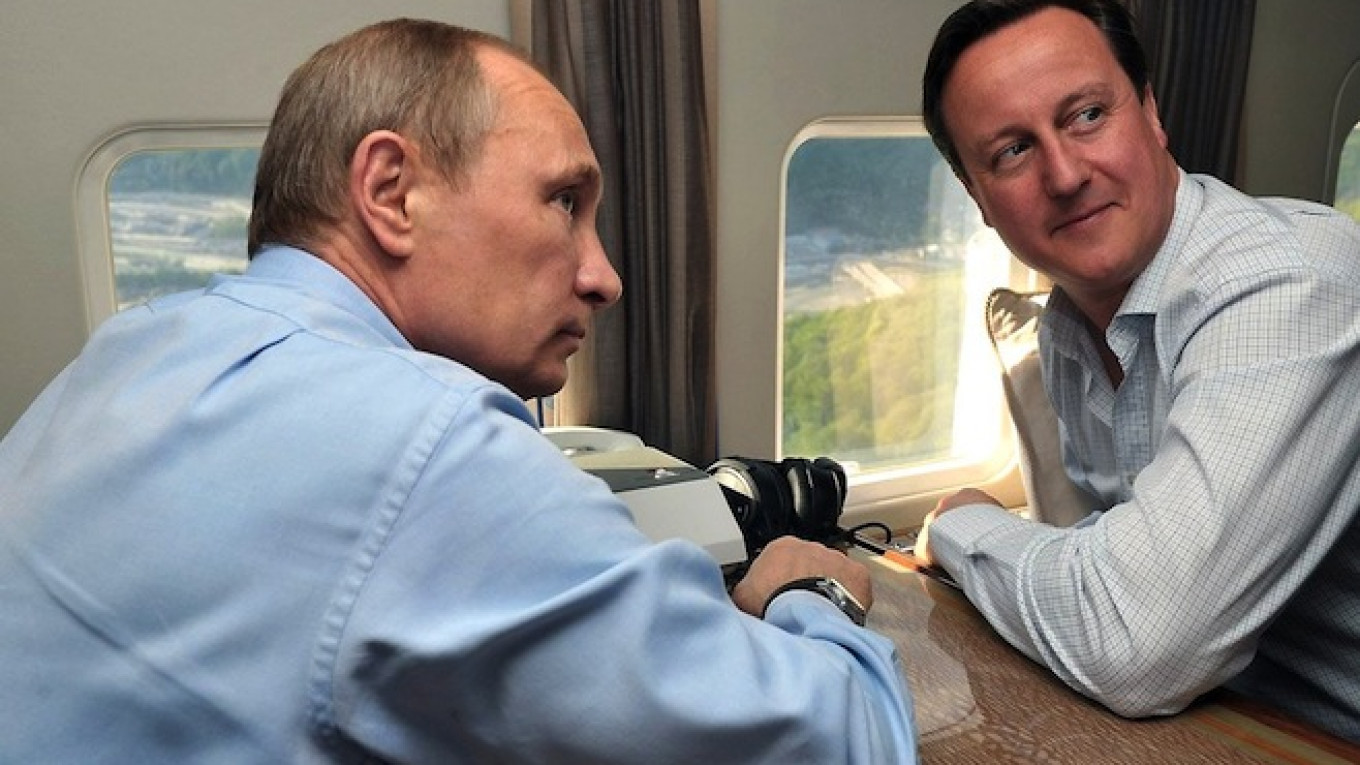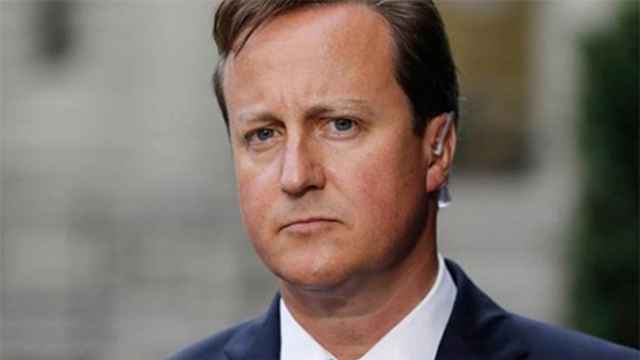If there is anything the last two years should have taught us, it is that the unthinkable can happen — separatism, disintegration, even wars — and that it can happen very quickly.
When, in spring 2014, I saw the events unfolding in eastern Ukraine, I saw poor, disenfranchised, proud populations — the losers in globalization — manipulated with lies, half-truths and statistics. I saw them fight for greater isolation in a way entirely contrary to their own interest. I saw intolerance, fear, anger and mutual hatred develop, creating the necessary backdrop for conflict.
Seeing a similar process develop in my own country has been difficult. Not only because I never expected it when perhaps I should have done. (Yes, this too.) But more because the British electorate has historically been reliable — a centrist, tolerant and largely sensible one. We don’t do crazy, we don’t rock the boat. We have built an institutional, media and analytical support system that was, until this week, the envy of the world.
Now our political system has unleashed the most ugly of energies.
We don’t know where the U.K.’s vote to leave the EU will take us next. It has already cost the life of a young MP, the career of a prime minister, and, probably, the main opposition leader — this we will no doubt find out soon enough. After an aggressive campaign, we have been left with a deeply divided country — split generationally, geographically and educationally. Never before has there been so much animosity in the U.K. Not even [former Prime Minister Margaret] Thatcher managed it.
With many people waking up to the enormous consequences of their decision, it may well be that the country never gets round to implementing Brexit in full. At least one major party is now campaigning to reverse the outcome in a general election. Several MPs have indicated they will try to block Brexit in parliament, where a majority are still for Remain. An online petition calling for a repeat referendum has now been signed by nearly 4 million people.
But rejecting the democratic will of the population will mean another lurch into the dark, risking a political crisis so profound that the worst of the Ukrainian scenarios — mass violence — might even become a reality.
What Happened?
Until recently, Europe has been the neurotic obsession of a small section of the Conservative Party on the far right. The center-left, which for most of the interim period has been in power, has largely been pro-Europe, and this has kept the issue from the top of the political agenda.
As elsewhere in the world, however, the financial crisis of 2008 was a jolt to politics as usual. In the U.K., it marked the start of explosive growth of anti-globalism, populism, cynicism and anti-immigrant feeling. On the back of it, the center-left Labour government fell, and a center-right coalition came to power.
The return of the right to politics saw the return of Europe as an issue. Over time, it would undermine David Cameron’s prime ministership. With a leadership challenge on the horizon, Cameron took a huge gamble and granted a referendum to his right wing. In the end, the gamble gave him just 13 additional months in power, and it trashed his legacy.
But while the “right” caused this referendum to happen, it was the traditional “left” that won it. More than 40 percent of Labour voters — all across Labour’s industrial heartlands in the north and east — chose Leave.
The working class rejected the main message of the Remain campaign — that the EU was a contributor to British wealth. They had nothing to lose from change, so bad was their situation anyway, they said. This created a highly unusual alliance between them and the leaders of the leave campaign, mostly elite neoliberal right-wing conservatives looking for a career boost, and far from the usual allies of the working classes.
Poor Britain bought Leave’s bogus argument that the 2008 economic crash was down to Europe, and that a fall in living standards was down to immigration. The level of ignorance was stark. The areas with the least immigration had the highest Leave votes, indicating it to be a problem of perception above all else. London, with the highest levels of migration in the country, was overwhelmingly for Remain.
The other main split on June 23 was generational. The referendum was, essentially, won on the pensioner vote. Usually, this category of voters stays with the status quo, the least risky option. But here, it was the elderly who were the rebels, the youngsters were the risk-averse. As in the Donbass and Crimea, retirees voted on nostalgia — they wanted to be young again, even if the world had moved on.
Welcome to Post-Factual Britain
Some excited Russians and Ukrainians have tried to link the victory of the Brexit campaign to the Kremlin. While no doubt the Kremlin welcomes the exit of the most Russia-sceptic country in Europe, it is highly unlikely they played any significant role. During the campaign, the British reacted very strongly to anything viewed as foreign intervention. Even U.S. President Barack Obama’s attempt to shore up votes for Remain was considered counterproductive.
But Russian politics were arguably present in the campaign’s brash style if nothing else. British politics have always been Machiavellian. Calculating strategists have always known where to strike — economy, migration — and they strike hard. But never before had tactics of such brazen manipulation been used. Never before has black been packaged as white. Never before had British politics so mirrored the cynicism of the post-Soviet space.
The British democratic, “balanced” media was unable to counter the new reality. They found their “two points of view” approach undermined by new, extravagant claims, devoid of normal British humility. Faced with claims of science and pseudoscience, they chose somewhere in the middle.
The British were, essentially, told by the Leavers not to think, but to have faith. Michael Gove, a cabinet minister and leading Brexit campaigner, compared economists who warned against Brexit to “Nazi” propagandists. It was an approach that paid dividends. In a fascinating poll conducted just before the election, there was a notable difference in trust between Remain and Leave voters. The Remain voters responded as might be expected. They trusted experts, teachers, and did not trust politicians. Those who wanted to leave the EU, however, trusted no one.
U.S. presidential candidate Donald Trump was no doubt watching.
The End of Party Politics?
Limiting themselves to such arguments of faith, Leave campaign had, as they later admitted, little idea of what exactly would happen in the event of victory. Would the U.K.’s relationship to Europe be like Norway? Like Canada? Would they be allowed associate membership? At what cost?
Today, it is fairly evident the U.K. has no clear plan. Its prime minister is on his way out, and the main opposition Labour Party is in the middle of an internal coup that will likely unseat the populist leader of the party, Jeremy Corbyn. There may be a breakaway center-left party, should Corbyn refuse to resign.
An additional ingredient for the turmoil is early general elections, which are likely to happen in the next six to 12 months. Early elections would, in theory, be a chance for one of the opposition parties to launch a last-minute “Stay in the EU” campaign. Given that the majority of voters in the Labour heartlands voted Brexit, the party to launch such a campaign is unlikely to be Labour, who are dreading the prospect of an election that could decimate their working-class support.
Perhaps more worrying for the main political parties is fact that the morning after the referendum, Britain also woke up to a new political reality. No longer is the country split along traditional left-right ideologies. Britain is now a country divided between In and Out, citizens of the world and little Englanders, the comfortable metropolitan classes and the down-and-out working classes.
Little surprise, therefore, is the talk of a new left-right coalition, above party politics, campaigning on the one issue of Europe.
Meanwhile, the leader of the Scottish Nationalist Party, and first minister of Scotland, Nicola Sturgeon, does have a plan. She has said that Scotland, which voted for staying, will look to veto Brexit by withholding legal consent for it. This is unknown territory, and it may or may not have constitutional significance. But if Sturgeon is unable to prevent Brexit, Scotland is likely to leave the U.K. The First Minister has already indicated her intentions of holding a repeat independence referendum. A poll over the weekend indicated 59 percent of Scotland are now in favor of independence.
All It Takes Is a Spark
All in all, it took little over two years for an internal squabble within the British Conservative Party to end with the potential dismantling of the U.K., and of Europe.
Unfortunately, things now have the potential to get a lot worse before they get better. When the British economy feels the full impact of a withdrawal of investment and isolation, and enters the almost inevitable recession, internal pressures and inter-ethnic tensions are only likely to increase. In the last few days, a number of reports have indicated that vigilante attacks by white supremacist groups are on the increase. Some migrants have seen their homes defaced by graffiti, and told to “go home.”
The hope is that, unlike two years ago in Ukraine, the now barely functioning British political system is able to quell violence, find consensus, and avoid the worst of scenarios.
But it is hard not to feel despondent about this very dangerous moment in British history.
A Message from The Moscow Times:
Dear readers,
We are facing unprecedented challenges. Russia's Prosecutor General's Office has designated The Moscow Times as an "undesirable" organization, criminalizing our work and putting our staff at risk of prosecution. This follows our earlier unjust labeling as a "foreign agent."
These actions are direct attempts to silence independent journalism in Russia. The authorities claim our work "discredits the decisions of the Russian leadership." We see things differently: we strive to provide accurate, unbiased reporting on Russia.
We, the journalists of The Moscow Times, refuse to be silenced. But to continue our work, we need your help.
Your support, no matter how small, makes a world of difference. If you can, please support us monthly starting from just $2. It's quick to set up, and every contribution makes a significant impact.
By supporting The Moscow Times, you're defending open, independent journalism in the face of repression. Thank you for standing with us.
Remind me later.






